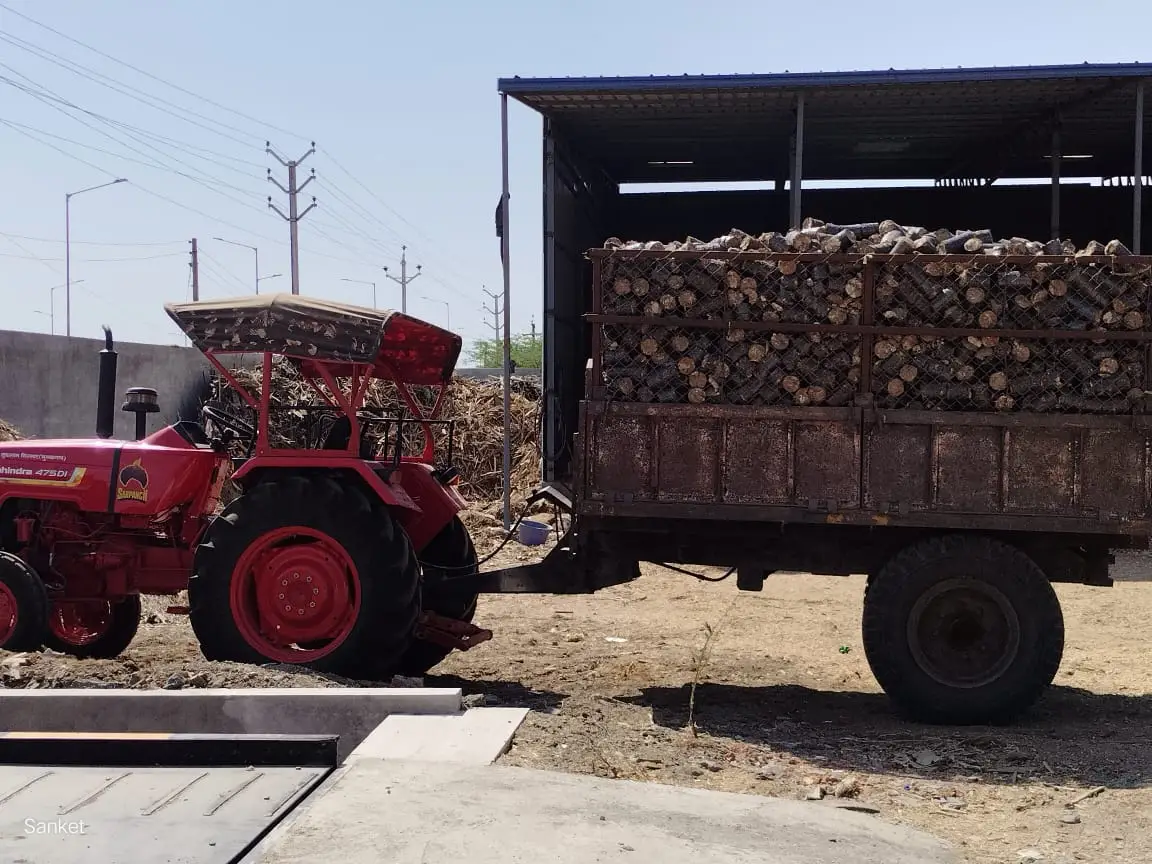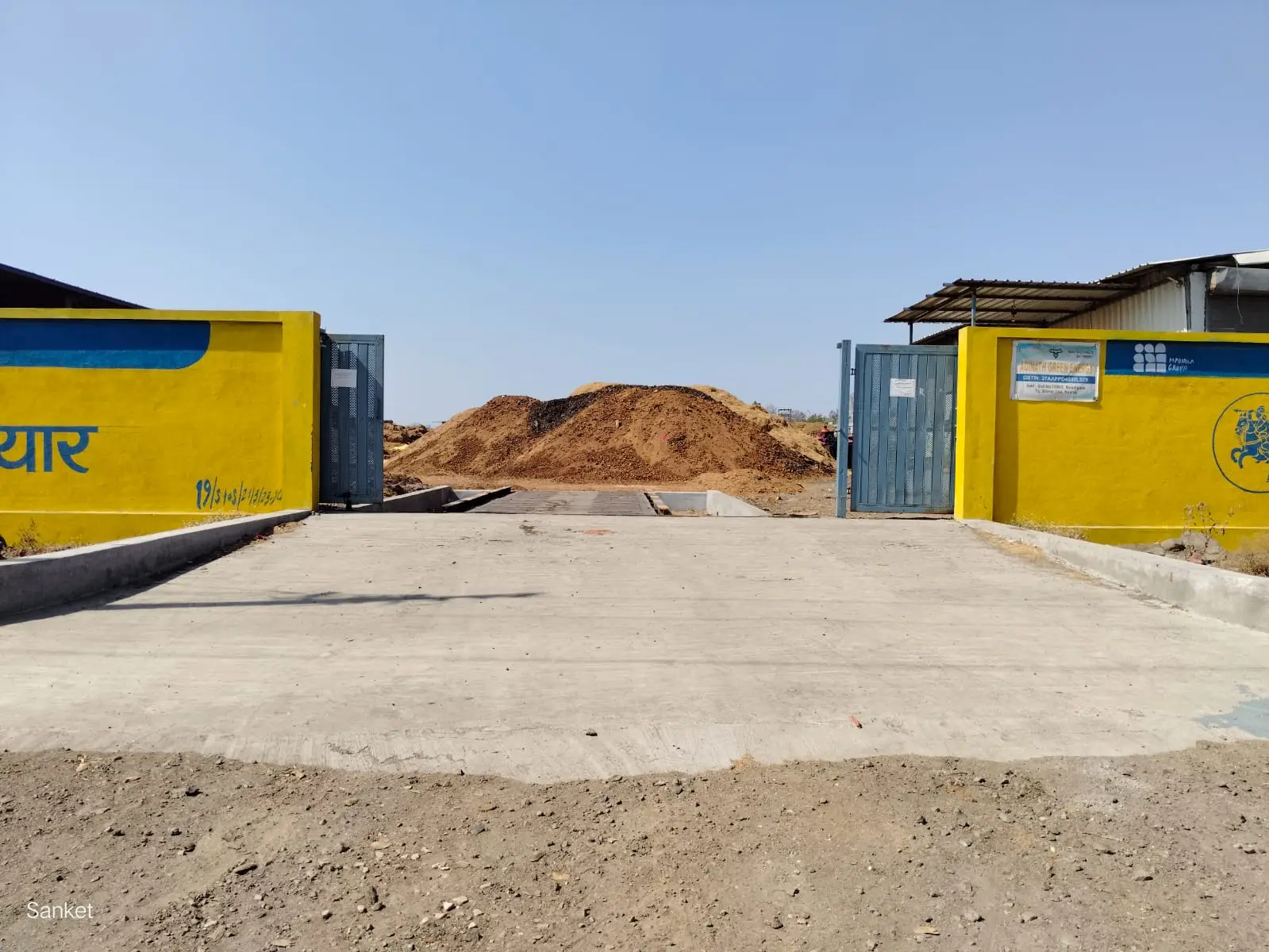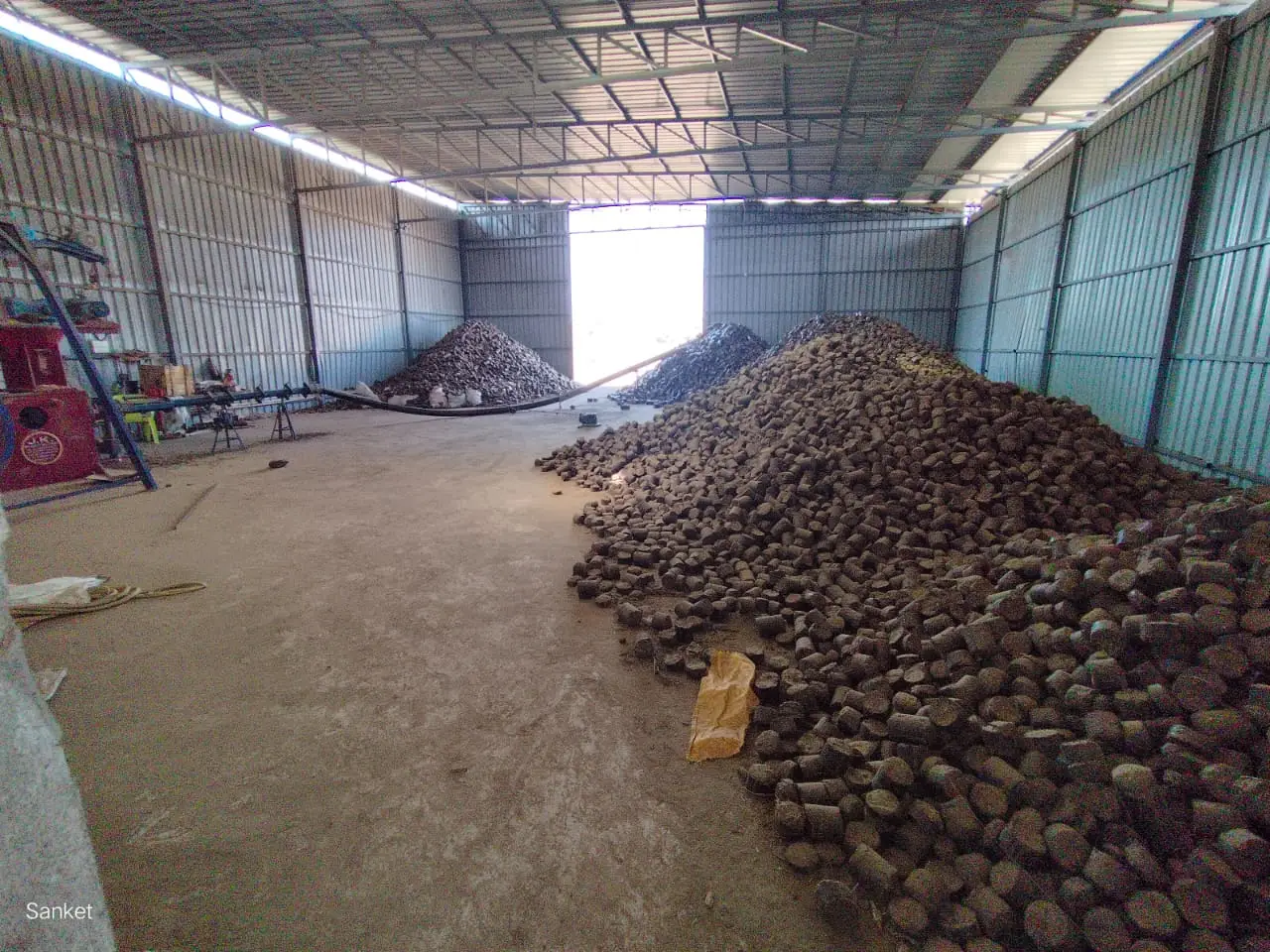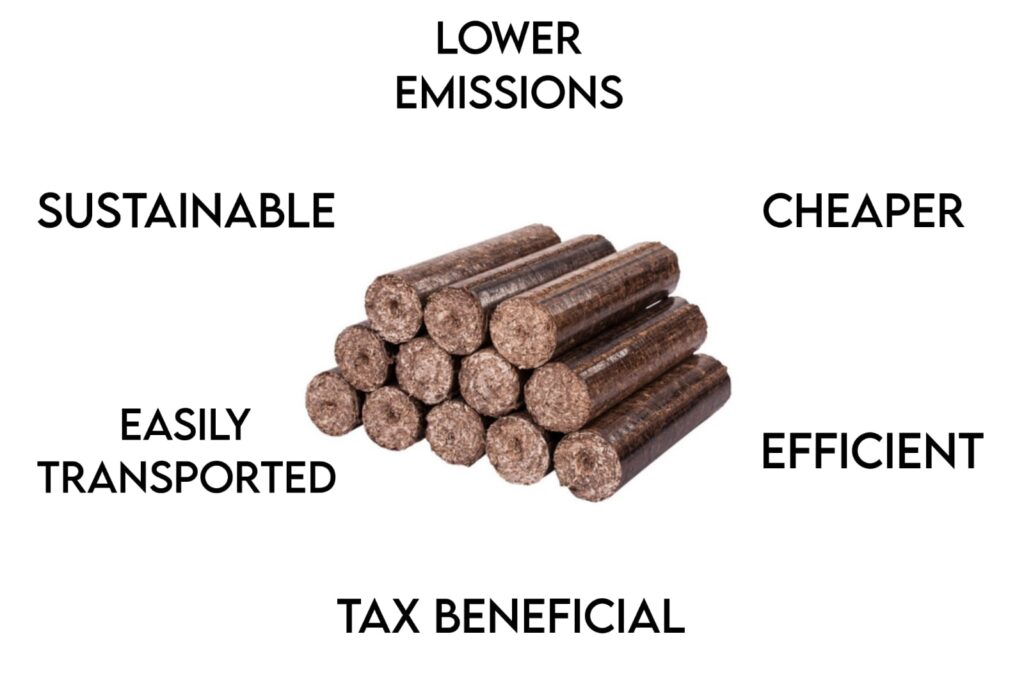


Biofuel Biomass Briquette
Biofuel Biomass Briquette serves as the fuel source utilized for power generation or thermal applications on an industrial scale. It is a sustainable alternative to non-renewable energy sources such as coal, petroleum, and natural gas, it comprises compressed agricultural waste materials including soybean hulls, sawdust, cotton waste, babool, corn, and others. This conversion process facilitates efficient utilization and contributes to environmental conservation efforts.
Advantages of Biomass Briquettes over Fossil Fuels

1. Lower Emissions- Research has shown that using Biomass Briquette reduces carbon emissions by 70%. India has prevented around 144 million tons of CO2 emissions annually by replacing coal with briquettes.
2. Cheaper- Biomass briquette are very cost effective as it is made of waste products. Biomass briquettes save 50% more than Non renewable fuels like coal.
3. Efficient- Briquettes have high energy density and are easy to burn during direct or co-firing.
4. Tax Beneficial- Government of India promotes the use of biomass briquettes with various incentives and subsidiaries.
5. Easily Transported- Biomass briquettes are loaded in trucks and delivered much faster than other fossil fuels.
6. Sustainable- Biomass is a renewable source of energy, abundant in nature and reduced greenhouse effect, making it very sustainable to use for business.
Industry uses of Biomass Briquettes
- Pharmaceutical Industry
- FMCG and Beverage Industry
- Brick Kilns
- Power Plants
- Cement Plants
- Textile Industry
- Chemical Plants
SPECIFICS | DIMENSIONS |
|---|---|
Ash Content | 10% (+/- 2 %,) |
Shape | Cylindrical |
Calorific Value | 3600 (+/- 200 ) |
Size | Diameter 90 mm |
